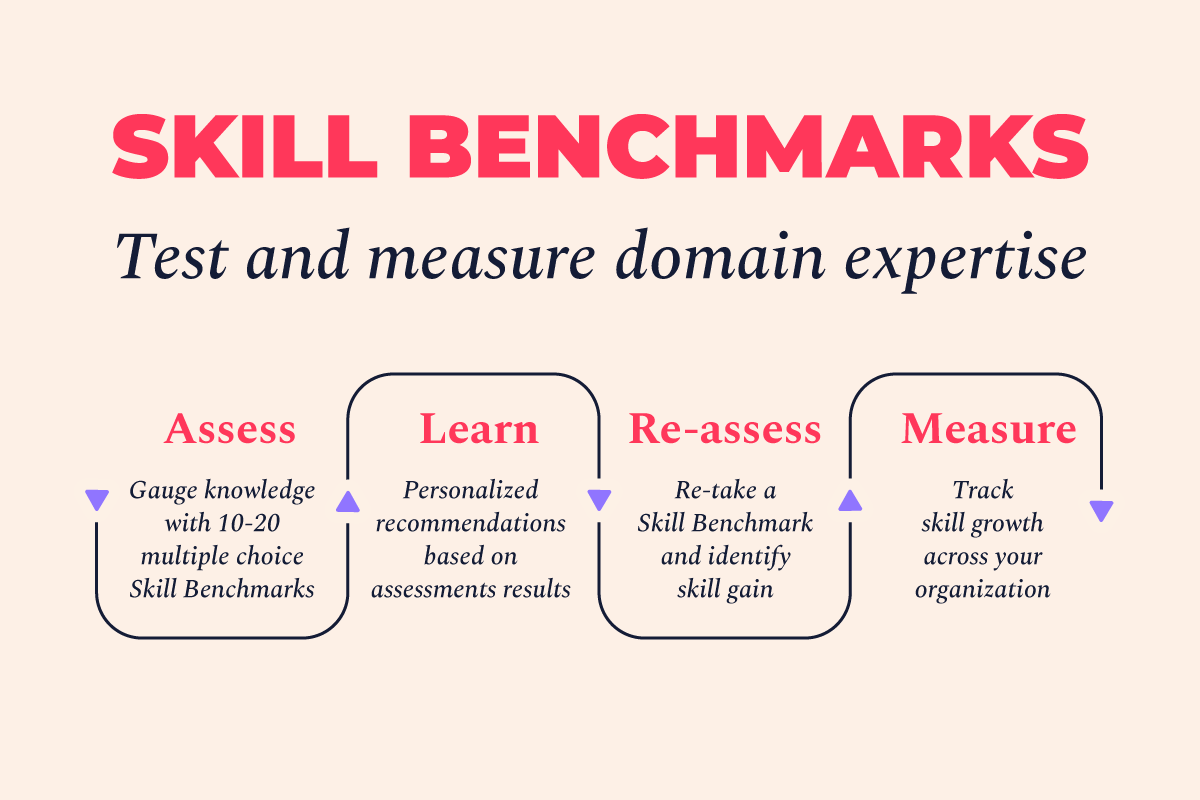Understanding Your Organization’s AI Maturity: A Roadmap to Transformation

Organizations are continually challenged to adapt to new technologies, shifting market demands, and evolving societal expectations. When generative AI exploded into the spotlight with the release of ChatGPT, it spurred an awe-inspiring and truly game-changing wave of technological innovation, going on to affect virtually every role in every industry. We’re witnessing a time of pervasive skills disruption as the traditional trajectory of careers and their requisite skills are undergoing a seismic shift.
In fact, according to our IT Skills and Salary Report, 66% of IT decision-makers say they suffer from a skills gap — marking no improvement since last year. The future promises more of the same, with more than half of IT decision-makers reporting they anticipate a skills gap in the next one to two years.
The stagnation underscores an important step that all organizations must take to ensure they're preparing for future waves of disruption. They must take stock of their workforce's skills and track their development over time.

To thrive in this dynamic environment, organizations must ensure their workforce possesses the necessary skills and competencies to drive innovation and growth.
This multifaceted challenge requires organizations to have a workforce that is not just technically adept but also possesses the power skills to lead the way forward—as well as a deep understanding of the ethical, social, and environmental implications of their work.
That means organizations must either hire someone new or upskill and reskill their existing employees. As today’s landscape is constantly changing, our traditional education institutions simply can’t pivot quickly enough to produce talent with the skillsets currently in demand.
As a result, reskilling and upskilling have become more important for organizations to prioritize than ever before. The first question organizational leaders need to ask themselves is --
We will email when we make a new post in your interest area.
Today, every organization relies on technology, which constantly shifts. The rate of change in the field is one of the main reasons why skill gaps remain as widespread as they are. To have a chance at keeping up, employers must first know their workforce's proficiency in both technical and non-technical areas.
No two employees are the same — every workforce comprises individuals with varying expertise and competencies. Managers need to measure their team members’ capabilities to gain valuable insights into the diverse skill sets present within their teams and ensure conceptual understanding and mastery. By understanding the breadth and depth of skills across different roles and departments, employers can make informed decisions regarding resource allocation, project assignments, and talent development initiatives, using data to drive workforce transformation.
Tracking skill proficiencies provides employers with a clear picture of their workforce's strengths and areas for improvement. By analyzing a skills dashboard, employers can identify emerging trends, gaps, or deficiencies in specific skill sets to address skill gaps before they become detrimental to performance or hinder business objectives. Whether through targeted training programs, coaching opportunities, or strategic hiring decisions, employers can take proactive measures to enhance their workforce's capabilities while eliminating redundant or irrelevant training.
Tracking skill proficiencies empowers employers to provide personalized feedback and development opportunities tailored to each employee's unique strengths, weaknesses, and career aspirations. By leveraging skill data, managers can deliver more meaningful feedback, set realistic performance goals, and design customized assignments to facilitate specific skills growth. This individualized approach not only enhances employee engagement and satisfaction, but also fosters a culture of continuous learning and growth, driving improved performance and retention rates across the organization.
Each employee plays a key role in progressing their organization's mission. But what about their careers? As employees' interests and responsibilities change, a solid grasp of their capabilities will clarify where their learning journey leads next.
Most learners within an organization want a way to evaluate their proficiency and skill growth. By taking dynamic skills assessments, employees can gain quantifiable insights into their strengths and areas for improvement. This data-driven approach allows individuals to set clear performance goals, track their progress over time, and demonstrate tangible evidence of their expertise and growth.
There are never enough hours in the day. Within an organization, learners must find a way to balance their daily professional life and need for professional growth. To do so, employees need to take the shortest path to mastering new capabilities. Organizations should look to provide their employees with guided, personalized content recommendations based on their individual results rather than waste their employees’ energy on learning things they already know.
With interactive learning assessments, employees can receive immediate feedback to proactively address areas where they may be falling short or making mistakes. By identifying and rectifying errors in real-time, employees can gain confidence in their abilities and move beyond recall of facts and into application of concepts.
In a world where the only constant is change, the ability to learn, adapt, and grow has never been more critical. The ability to track and measure skilling capabilities is indispensable for both employers and employees who are seeking to thrive in today's dynamic business environment.
With Skill Benchmarks—short diagnostic assessments tied to specific learning objectives—organizations can assess, fortify, index, and track in-house skills to make informed, data-driven decisions based on a talent inventory. Skill Benchmarks provide a score and level to measure individuals’ proficiency and offer personalized online course recommendations to help close gaps.
Do you trust that the workforce you have is the one you need in this ever-changing landscape? See how you stack up with Skills Benchmarks.

